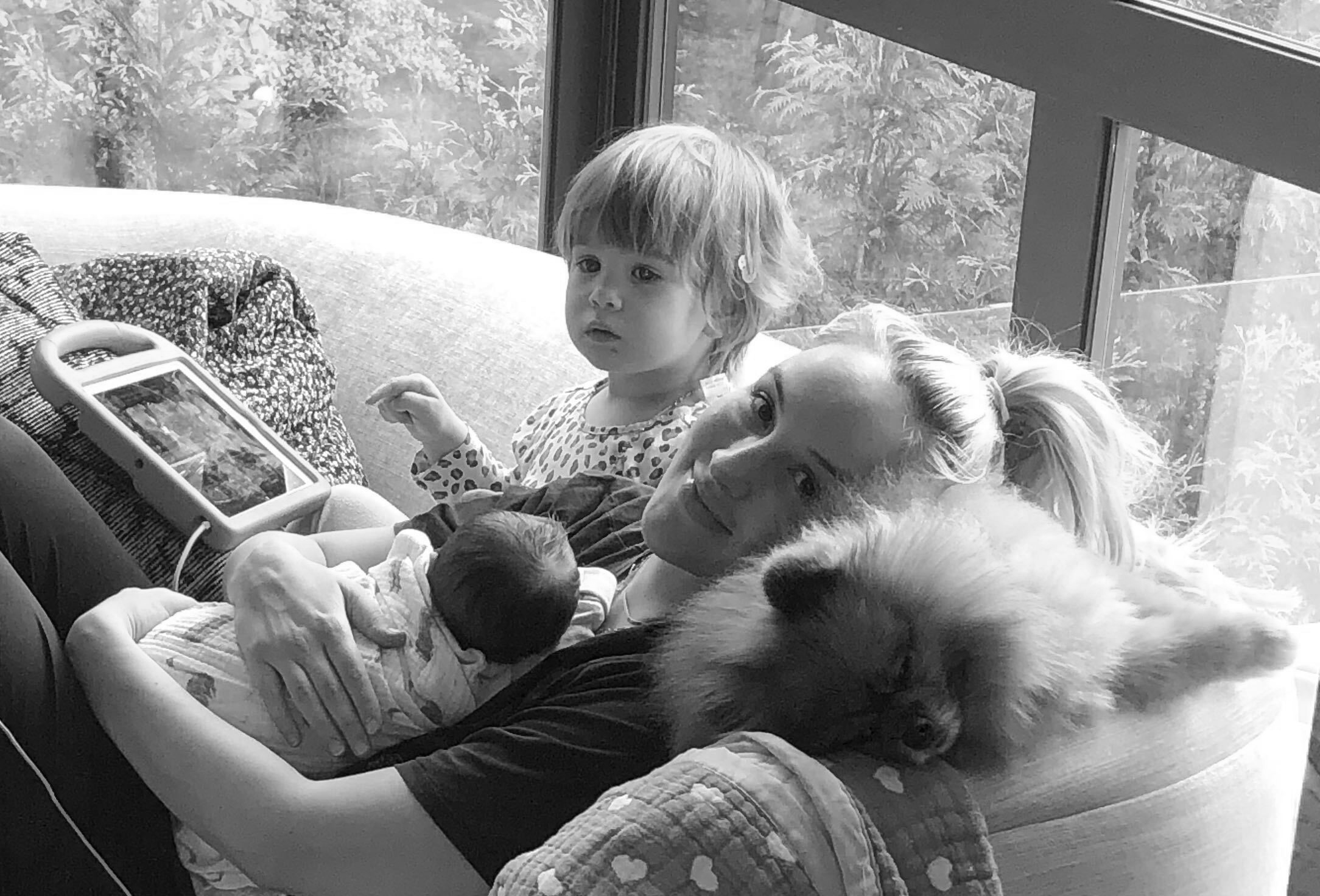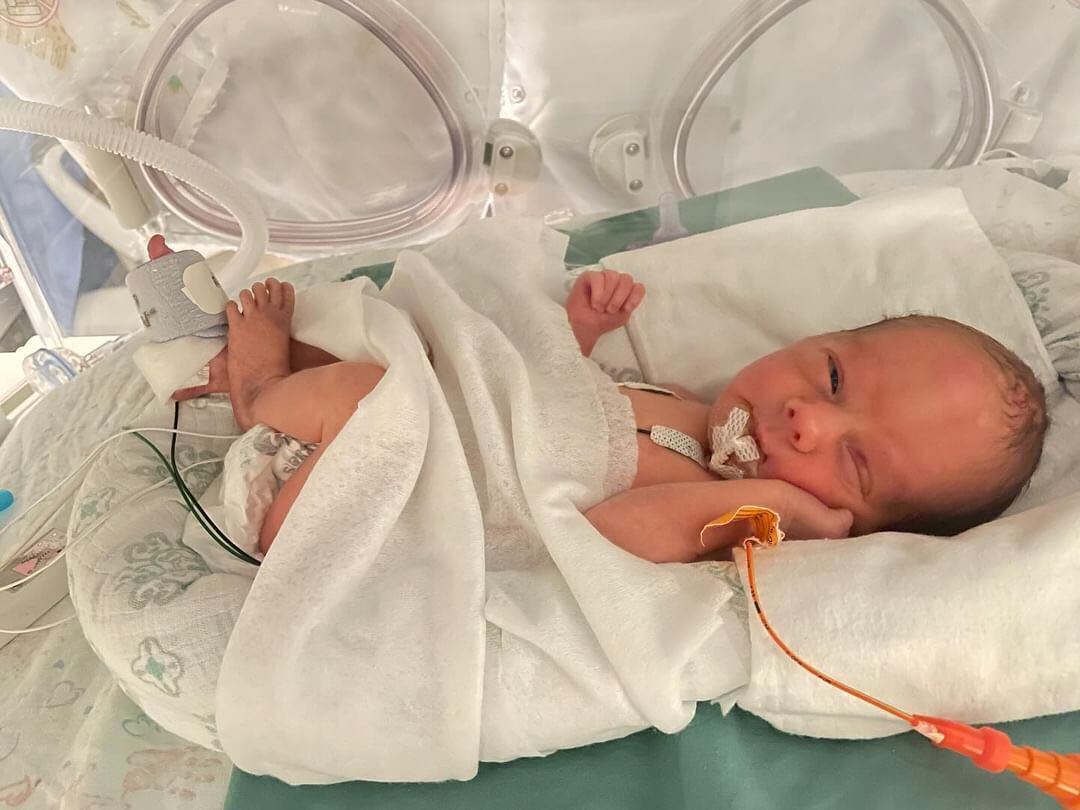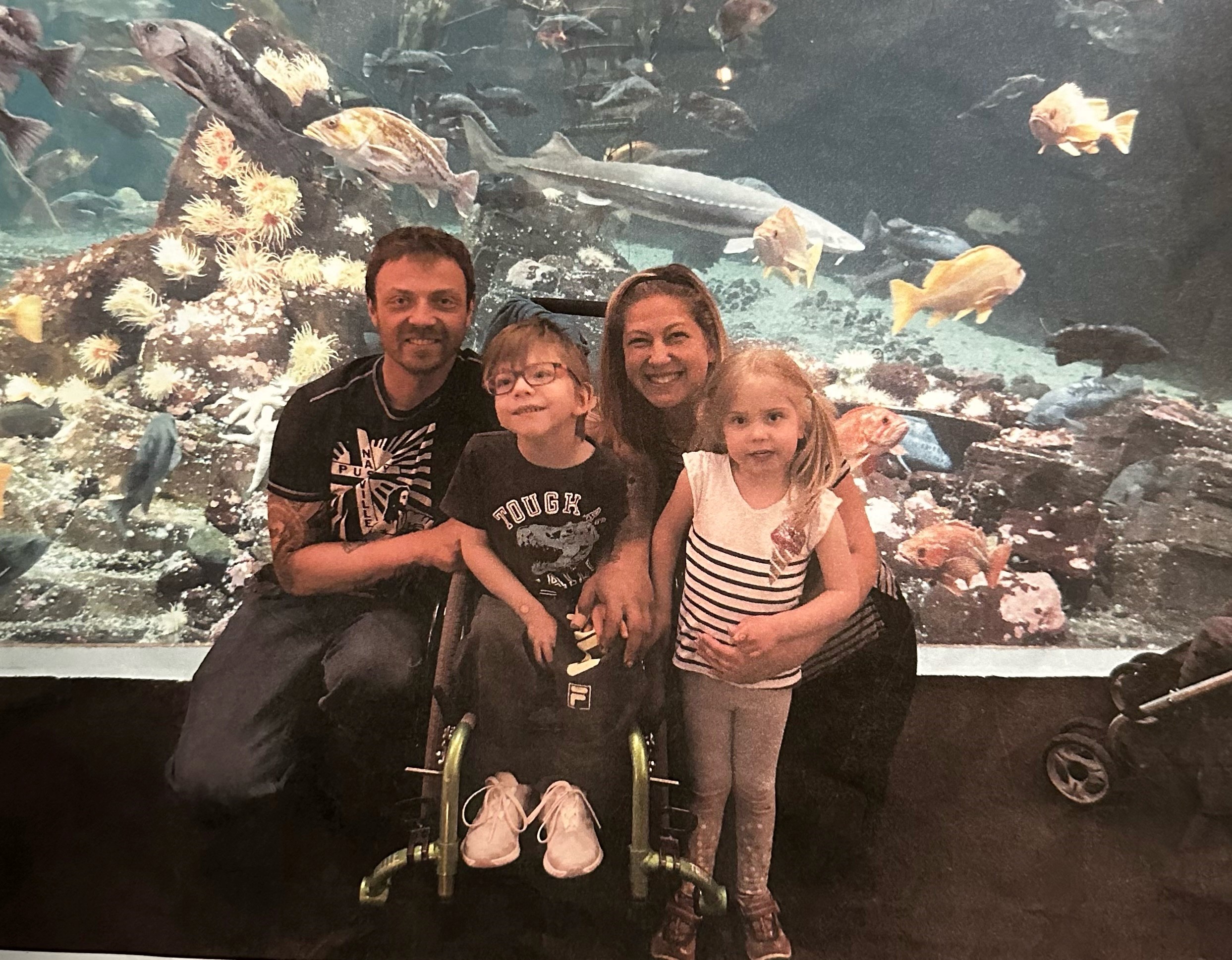
Christie Buono, Senior Manager of Community Partnerships, asked Gillian Segal Principal & Founder of Gillian Segal Design and co-chair of our Young Women’s Council a few questions about her journey through motherhood, and what inspires her to give back to our Foundation.
CB: I’ll start out by asking — why does women’s health matter to you?
GS: Now more than ever, as a mom of two girls, my health and my daughters health is so important. On a broader level, as women we are so fortunate to have more opportunities than ever before… but our responsibilities in the home have not really decreased. I truly feel that women hold our families together — so how could their health not matter?
CB: Hey, I agree completely. Are there any women’s health statistics in particular that really shock you?
GS: The fact that so many common drugs were never tested on women is shocking to me. I could not believe how many medications that I thought were “for me” over the years have likely only been tested on my male counterpart. They have so many differences — even take just their average body weight as one example!
CB: So what first inspired you to get involved with our Foundation?
GS: My dad, Dr. Teal is a neurologist, so contributing to healthcare has always been a part of our family’s life.
After experiencing the care at BC Women’s, after the birth of my first daughter, and the postpartum help I received through the BC Women’s Reproductive Mental Health Program to treat my postpartum anxiety… I knew I wanted to find a way to get involved and help in any way I could.
CB: That’s beautiful. Would you feel comfortable expanding on your personal story at all?
GS: Yes. After giving birth to my first daughter, Georgia I had terrible postpartum anxiety. As someone who had dealt with an anxiety disorder my whole life, and with my family history of depression, I knew it was time to seek help. I was past the normal “baby blues” or new mom worries. I couldn’t sleep. I could barely do anything because of the constant fear that my baby might die. I went to see a doctor who told me I would be fine. They told me to google local psychologists, to find someone to talk to about my feelings, and sent me on my way.
I was not in a good place. When I relayed this “diagnosis” to my Dad (who is a Doctor) he was appalled. He told me to call my OBGYN, and they immediately got me in to see a psychiatrist at the BC Women’s Reproductive Mental Health program.
The help and treatment I received there was incredible. It changed my experience of early motherhood. I have seen friends and family members go through terrible postpartum depression and I was so grateful to get help before things got worse. Without the encouragement from my family to continue pursuing help, I can’t imagine how things may have gone. This is why I feel it’s my duty to help others do the same.
CB: I love that — pay it forward. Here’s a throwback: do you remember an early story, perhaps even the first time you gave back?
GS: I can’t remember a specific first, but I went to York House from K-12 and our school motto was, “not for ourselves alone.” This was something that was woven into everyday life at the school. There was never a shortage or food bank drives and volunteering opportunities, and it just always felt so good to feel like we could make an impact helping others. As an adult, I feel like giving back really helps us to step outside our own small issues and our life into perspective.
CB: So that said: what is your number one favourite way to give back to your community?
Giving my time. I think time is our most valuable commodity and I like feeling truly involved and connected to any organization I am giving back to. During the COVID pandemic, now more than ever, we are all realizing the importance of community ties and helping each other. It’s our job to reach out and lift each other up. We are stronger together.
CB: This one might be a hard question, but if you had to articulate your “legacy,” what would you say?
GS: Helping women to stand up for themselves and advocate for their health… even if they are being dismissed. This has happened to me, and I was lucky enough to have people in my life (including my Dad) to tell me that I needed better care, and to hunt it down. Not every woman is so fortunate, so to be able to help even just one woman with this would be a success to me.
CB: And if someone else was interested in giving in their own way, what advice would you give them?
GS: To find a cause that resonates with them and find a way to get involved. It could be as small as making a small donation, or finding a way to volunteer your time: every contribution adds up.
Women make up so much of the workforce. It is actually in the best interest of companies to invest in women’s health. Beyond that, when we look at the impact women have outside the workplace — in their families, taking care of spouses, children, aging parents — it is really in all of society’s best interest to see women thrive.
CB: Okay last question — who in your life who inspires you?
GS: My mom, my sister, my friends. I believe the people we spend the most time with have the greatest influence on us. I feel grateful that the women in my close circle are incredible people who inspire me every day.
STAY ENGAGED
- Donate to our COVID-19 Response Fund, supporting new and expecting mothers.
- Share your story on our website, or tag us in your posts @bcwomens.
- Submit a Message of Thanks to a healthcare team at BC Women’s Hospital.
-
Hope and Healing for BC’s Most Vulnerable
Not all pregnancies go smoothly. Some new moms encounter a multitude of life-threatening challenges. This was ...
Read more -
Immunoassay Analyzer for Newborn Screening
Simply put, early detection through newborn screening is saving lives. Baby Harri was one of the fortunate bab...
Read more -
A Journey of Hope + Gratitude
"You just never know how much you’ll appreciate a great facility like this until you go through something yo...
Read more



